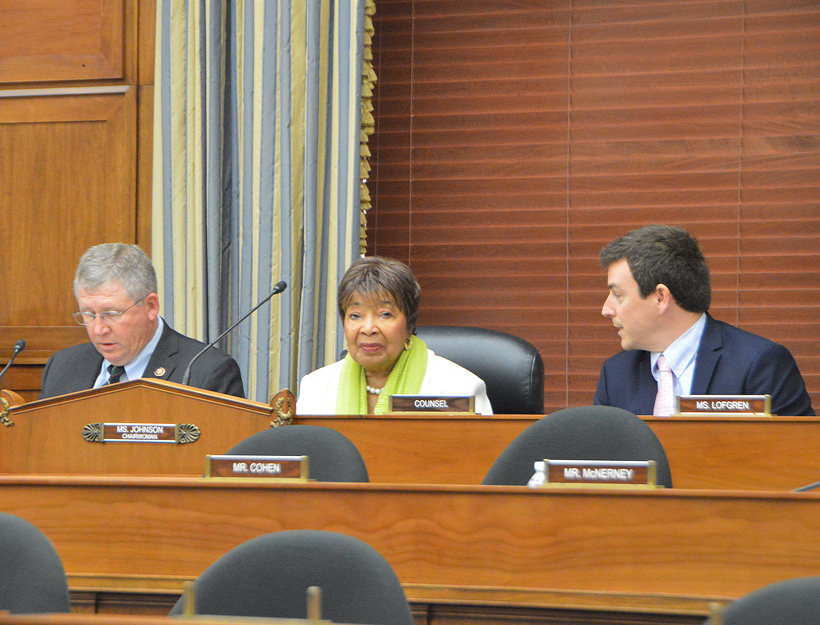A White House executive order that calls for eliminating one third of federal advisory committees by 30 September is coming under scrutiny by the chair of the House Committee on Science, Space, and Technology.
Committee chair Rep. Eddie Bernice Johnson (D-Texas) has called for eight science agencies to provide information by 1 August about their strategy for implementing the executive order.
“I am puzzled by the order’s apparent presumption that one third of the FACA committees established at agencies’ discretion have exhausted their usefulness.”
“I am puzzled by the order’s apparent presumption that one third of the FACA committees established at agencies’ discretion have exhausted their usefulness,” Johnson wrote in 12 July letters to the heads of the Department of Energy, Environmental Protection Agency (EPA), NASA, National Oceanic and Atmospheric Administration, National Science Foundation (NSF), and other federal science agencies.
The executive order, issued on 14 June, calls for each agency to cut at least one third of its current federal advisory committees and to provide termination recommendations by 1 September regarding committees. The order states that criteria for potential termination include whether the committees’ stated objectives have been accomplished and whether operation costs for committees are considered excessive in relation to their benefits to the federal government.
The order also calls for limiting the government-wide number of federal advisory committees to 350. The order does not affect merit review panels or independent regulatory agencies, and it allows agencies to request a waiver from the order requirements.
The Federal Advisory Committee Act (FACA) database currently lists about 1,000 advisory committees throughout the federal government that provide advice to the president and the executive branch on a wide range of issues. FACA committees include NASA’s Earth science and planetary science advisory committees, EPA’s Science Advisory Board, and NSF’s Advisory Committee for Geosciences.
Johnson’s letter calls on the agencies to provide her with a list of FACA committees eligible for elimination along with information about how agencies will determine which FACA committees to eliminate, whether agencies will request waivers or mergers of committees, and whether the termination deadline is reasonable.
Her letter notes that former president Bill Clinton issued an executive order in 1993 to cut the number of advisory committees by one third, from 1,305 to 1,000. However, 4 years after that order, the U.S. Government Accountability Office found that overall costs had increased by 3%.
“While this [new] order is unlikely to reduce federal spending, it will certainly make the advisory process more opaque to the American public,” Johnson wrote.
She added that as the House Science Committee chair, “it is of utmost importance to me that science agencies continue to solicit expert advice in a manner accessible to the public. FACAs are a critical element to ensuring federal agencies operate in the best interest of the American people and an invaluable piece of the American science and technology enterprise.”
—Randy Showstack (@RandyShowstack), Staff Writer
Citation:
Showstack, R. (2019), House science chair questions plan to reduce advisory committees, Eos, 100, https://doi.org/10.1029/2019EO128857. Published on 16 July 2019.
Text © 2019. AGU. CC BY-NC-ND 3.0
Except where otherwise noted, images are subject to copyright. Any reuse without express permission from the copyright owner is prohibited.

